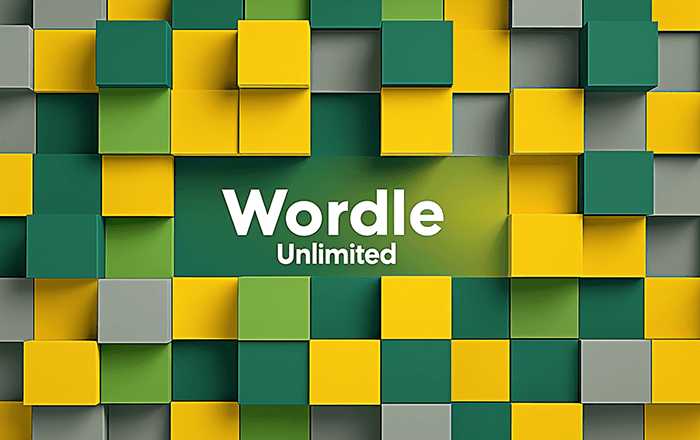Wordle Unlimited: The Addictive Word Game That Took the World by Storm
https://wordleunlimitedplay.com/
In the vast and ever-expanding universe of online games, few have made as sudden and widespread an impact as Wordle. Simple in design yet deceptively challenging in gameplay, Wordle became a global phenomenon almost overnight. However, as with many viral games, its biggest limitation was its very format: players could only attempt one puzzle per day. That limitation gave rise to Wordle Unlimited, a version of the game that keeps the core mechanics intact but removes the daily restriction, allowing players to solve an unlimited number of word puzzles. This essay explores Wordle Unlimited in depth—its origins, gameplay mechanics, appeal, educational value, and cultural significance in today’s digital landscape.
The Origins of Wordle
To understand Wordle Unlimited, one must first understand the origins of the original Wordle. Created by Josh Wardle, a software engineer from Wales, Wordle was initially a personal project for his partner, who loved word games. Wardle developed the game during the COVID-19 pandemic, and it quickly spread via social media thanks to its minimalist design, clever use of emojis for results sharing, and the “one puzzle a day” mechanic that created a sense of shared global experience.
In January 2022, The New York Times acquired Wordle for a low seven-figure sum, integrating it into their suite of word-based games. While the original game retained its charm, its limitation of one puzzle per day sparked demand for a more flexible version—especially from players who wanted to practice, challenge themselves further, or simply play more often. Thus, Wordle Unlimited emerged from the community and independent developers who wanted to expand on Wardle’s idea.
What Is Wordle Unlimited?
Wordle Unlimited is, in essence, a clone of the original Wordle with a key difference: there’s no daily limit. Players can play as many puzzles as they want, selecting new words over and over again. Some versions even allow custom words to be set, making it a useful tool for educators or for friendly challenges between peers.
The core gameplay remains unchanged. Players must guess a five-letter word within six attempts. After each guess, the game provides feedback:
Green tiles indicate the letter is correct and in the right position.
Yellow tiles mean the letter is in the word but in the wrong position.
Gray tiles show the letter is not in the word at all.
This elegant feedback loop creates a powerful combination of logic and vocabulary-based challenge. It’s akin to the classic game of Mastermind but with letters and words, tapping into linguistic reasoning rather than colors or numbers.
The Addictive Appeal
Why is Wordle Unlimited so addictive? Several psychological and cognitive factors contribute to its stickiness:
Instant Gratification: With no waiting period, players can move from one puzzle to the next without interruption. This eliminates the “one-and-done” barrier and feeds the player’s desire for immediate problem-solving satisfaction.
Cognitive Challenge: The game requires a blend of vocabulary, pattern recognition, and deduction. It activates the brain in ways that feel productive, not just entertaining.
Short Play Sessions: Each puzzle takes just a few minutes. The quick play format makes it easy to fit into spare moments, making it ideal for short breaks or casual play.
Progress and Mastery: With unlimited puzzles, players can hone their skills, develop strategies, and improve over time. Tracking stats like win streaks and average guesses adds a layer of gamification.
Custom Games: Some versions of Wordle Unlimited allow players to input their own words, perfect for friendly competitions, educational exercises, or themed challenges.
Educational Value
While Wordle Unlimited is undeniably fun, it also offers substantial educational benefits. It encourages vocabulary expansion, critical thinking, and spelling accuracy. Teachers have embraced the game as a classroom tool, creating custom word challenges based on lesson themes—such as science terms, historical figures, or literary references.


